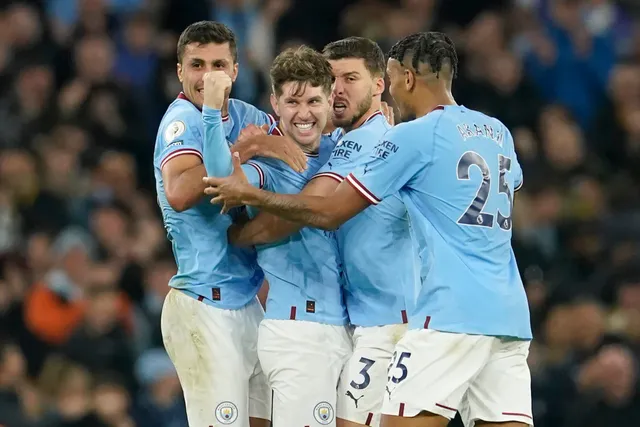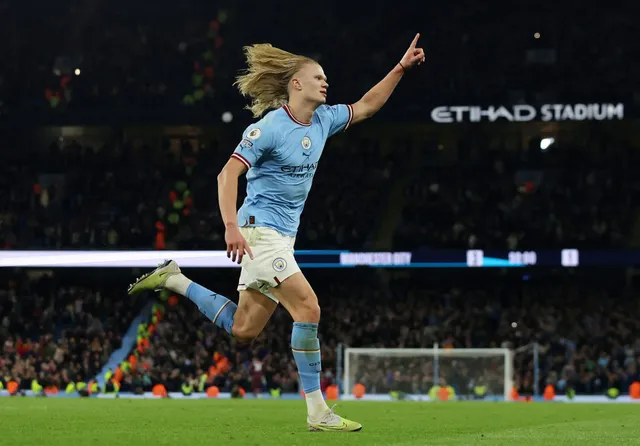MANCHESTER, England — Quite when Arsenal knew, for certain, that it was all over is difficult to pinpoint absolutely. There was still faith, presumably, after Manchester City’s first goal, which arrived roughly 370 seconds into a game that had been billed — for weeks — as the Premier League’s great championship showdown.
Some small sliver of optimism might even have endured after John Stones scored the second, delivered on a satellite delay after a video review not long before halftime. The last couple months of a season are a time for intellectual gymnastics and leaps of faith, after all, for the ifs and buts and maybes that soccer grandly calls “permutations.” Maybe a draw would do. Maybe a draw would keep the hope alive.
The third goal, though, was different. After the third, Arsenal’s Rob Holding stood with his hands on his hips, staring off into the middle distance. Gabriel Magalhaes sunk to his haunches, as if contemplating the nature of grass. Thomas Partey started to clap, softly, his reflexes telling him to encourage his teammates. He managed two, lost heart, and stopped.

Converted by Kevin De Bruyne, the third goal had taken whatever wisps of hope that remained for Arsenal and not only extinguished them, but razed their memory from the Earth, and then salted the ground so that they might never arise again. By the time Erling Haaland, hair flowing behind him, made it 4-1, it was hard to believe any hope had ever existed.

Arsenal remains atop the Premier League, of course, 2 points ahead of Manchester City, but having played two more games. The team’s coach, Mikel Arteta, is not prepared to cede anything just yet — “I have been in this country for 22 years,” he said, “and I have seen how quickly things shift” — but that lead now seems like a technicality, the consequence of a fractured timeline, a quirk of scheduling.